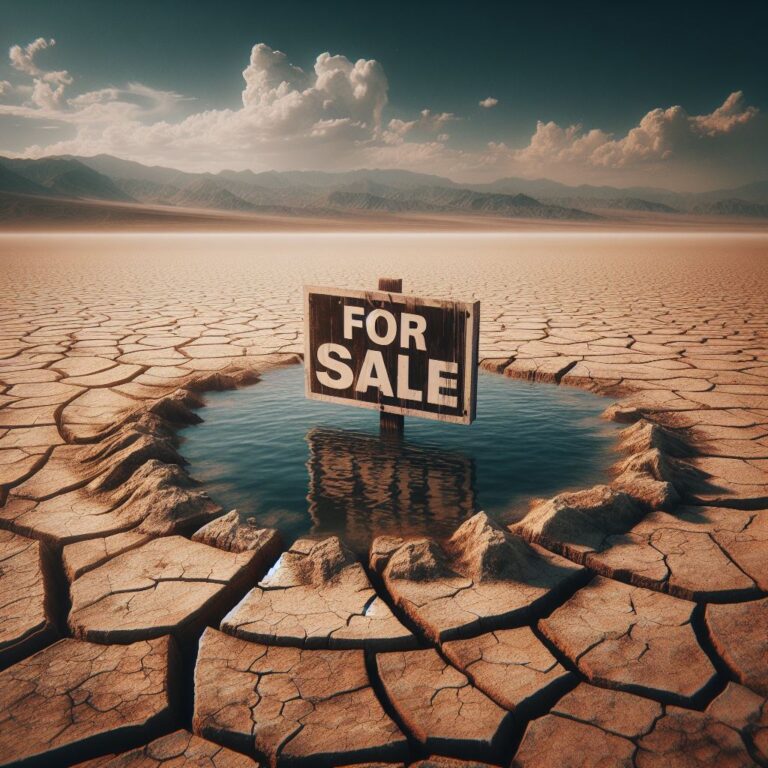Looking to explore the lucrative world of wetland sales? Discover the potential profits that await you in this thriving market. With an average listing price of $1,115,579 and an average price per acre of $5,422, selling wetlands can be a smart business move.
Currently, there are 1,629 wetland properties for sale, totaling 332,722 acres. These properties are located in various areas, such as Sussex County and Kent County in Delaware, Atlantic County in New Jersey, and Dorchester County and Camden County in Maryland. Whether you're interested in estuary land, marshy properties, riverine land, bog properties, or swamp-land, there's something for everyone.
So, why wait? Dive into the world of wetland sales and seize the opportunity today.
Key Takeaways
- Selling wetlands can lead to significant financial gains, with the average price of wetland properties being $1,115,579 and a wide range of prices indicating potential profitability.
- However, selling wetlands has negative environmental impacts, including the loss of habitats and biodiversity, disruption of hydrological processes, increased flood risks, and reduced carbon sequestration capacity.
- Wetland transactions require compliance with laws such as the Clean Water Act and the National Environmental Policy Act, as well as permits and approvals for transactions involving protected species or habitats.
- Stakeholders have different perspectives on wetland sales, with environmental organizations concerned about preservation, local communities having mixed views on economic development versus loss of natural resources, developers and investors seeing it as a lucrative opportunity, and government agencies responsible for regulating and balancing economic development with environmental sustainability.
Economic Motivations Behind Selling Wetlands
When considering the economic motivations behind selling wetlands, you may wonder why individuals and organizations choose to part with these valuable properties. Wetland property sales are driven by a variety of factors, including financial incentives and strategic land management decisions.
One key economic motivation is the potential profit that can be made from land sales. With an average price of $1,115,579 per property, wetlands offer a lucrative opportunity for individuals and organizations to generate substantial returns on their investment. The wide range of prices, from $100,000 to $4,500,000, further indicates the potential financial gains from investing in wetlands.
Additionally, the sale of wetland properties allows owners to capitalize on the current demand for these unique ecological habitats. With 332,722 acres of wetland properties for sale, there's a significant market for those seeking to invest in these valuable ecosystems. This demand is driven by both environmental conservation efforts and the economic opportunities that wetlands offer, such as recreational activities and eco-tourism.
Furthermore, selling wetlands can be a strategic decision for land management purposes. Some individuals and organizations may choose to sell wetland properties to focus their resources on other projects or to consolidate their land holdings. By selling wetlands, they can redirect their investments and efforts towards more profitable ventures or better manage their overall property portfolio.
Environmental Impacts of Wetland Sales
Selling wetlands can have significant environmental consequences, impacting diverse plant and animal species, natural hydrological processes, flood protection, carbon sequestration, and the recreational and cultural value of these ecosystems.
- Loss of habitats: Wetlands are home to a wide variety of plant and animal species, many of which are unique and specialized to these environments. Selling wetlands can result in the destruction of these habitats, leading to the loss of biodiversity and potentially endangering certain species.
- Disruption of hydrological processes: Wetlands play a crucial role in regulating water flow and maintaining water quality. When wetlands are converted into other land uses, such as agriculture or urban development, natural hydrological processes can be disrupted. This can lead to changes in water quantity and quality, negatively impacting surrounding ecosystems and communities.
- Increased flood risks: Wetlands act as natural sponges, absorbing and slowing down floodwaters. When wetlands are sold and converted, this natural flood protection is lost. As a result, surrounding communities may be at a higher risk of flooding, which can lead to property damage, displacement, and even loss of life.
- Reduced carbon sequestration: Wetlands are highly effective at capturing and storing carbon dioxide from the atmosphere, helping to mitigate climate change. When wetlands are sold and destroyed, this crucial carbon sequestration capacity is lost. This can contribute to the increase in greenhouse gas emissions and exacerbate climate change impacts.
It is essential to recognize the value of wetlands beyond their economic potential. The loss of these riverine land, bog properties, and marshy properties can have far-reaching environmental impacts that should be carefully considered before any decision to sell or convert wetlands is made.
Legal Considerations in Wetland Transactions
Before engaging in a wetland transaction, you must be aware of the legal considerations involved. Wetland transactions are subject to various legal regulations and requirements at the federal, state, and local levels. It's important to understand these legal considerations to ensure compliance and avoid potential liabilities.
One key legal consideration is the Clean Water Act, which regulates the discharge of pollutants into navigable waters, including wetlands. Sellers and buyers must be aware of the Act's provisions and obtain any necessary permits or approvals before conducting a wetland transaction. Failure to comply with the Clean Water Act can result in significant penalties and legal consequences.
In addition, the presence of protected species or habitats within wetlands may require additional permits or assessments before a sale can proceed. It's essential to conduct thorough due diligence to identify any protected species or habitats and address the necessary requirements. This may involve consulting with environmental experts and obtaining permits from relevant agencies.
Furthermore, wetland transactions may require compliance with the National Environmental Policy Act (NEPA) for federal projects or permits. NEPA mandates environmental impact assessments and public input for projects that may have significant environmental effects. Buyers and sellers should be prepared to comply with NEPA requirements, including conducting environmental assessments and engaging with the public.
Stakeholder Perspectives on Wetland Sales
One must consider various stakeholder perspectives when engaging in wetland sales. The sale of wetland properties can have a significant impact on different individuals and groups involved. Understanding these perspectives is crucial in order to make informed decisions and ensure the best outcomes for all stakeholders.
Here are some key perspectives to consider:
- Environmental Organizations: Environmental organizations are often concerned with the preservation and conservation of wetlands. They may view wetland sales as a threat to the delicate balance of ecosystems and advocate for stricter regulations to protect these valuable habitats.
- Local Communities: Local communities may have mixed perspectives on wetland sales. Some may see it as an opportunity for economic development and job creation, while others may be concerned about the potential loss of natural resources and the impact on their quality of life.
- Developers and Investors: Developers and investors may view wetland sales as a lucrative business opportunity. They may be interested in acquiring wetland properties for commercial or residential development, taking advantage of the unique features and scenic beauty of estuary land.
- Government Agencies: Government agencies play a crucial role in regulating wetland sales. They're responsible for enforcing environmental laws and ensuring that any sales are conducted in compliance with regulations. Their perspective is often focused on balancing economic development with environmental sustainability.
Considering these stakeholder perspectives is essential in navigating the complex world of wetland sales. By understanding the different interests and concerns, it's possible to find solutions that protect the environment while also promoting economic growth and development.
Ethical Concerns Surrounding Wetland Selling
To fully understand the ethical concerns surrounding wetland selling, you must consider the potential consequences for environmental conservation, biodiversity, and community welfare.
Selling wetlands, especially estuary land, raises significant ethical concerns due to the potential destruction of vital habitats and the loss of biodiversity. Wetlands are home to a diverse range of plant and animal species, many of which are unique and highly specialized to this specific ecosystem. By converting wetlands into developed land, we risk destroying these habitats and disrupting the delicate balance of these ecosystems.
Furthermore, the sale of wetlands can contribute to increased flood risks and water pollution, which directly impacts community welfare and safety. Wetlands play a crucial role in flood mitigation by absorbing and storing excess water during heavy rainfall. By converting wetlands into developed land, we remove this natural buffer, leaving communities more vulnerable to flooding. Additionally, wetlands act as natural filters, purifying water by removing pollutants and improving water quality. Losing these filtering capabilities can result in increased water pollution, undermining the health and well-being of both humans and wildlife.
Another ethical concern surrounding wetland selling is the potential disregard for the cultural and spiritual significance of these areas to Indigenous communities. Wetlands hold deep cultural value and are often intertwined with indigenous heritage and traditional land rights. Ignoring these cultural and spiritual connections when selling wetlands can lead to the erosion of indigenous rights and the loss of cultural heritage.
Lastly, converting wetlands into developed land can have long-term consequences for climate change and natural resource availability. Wetlands are known as carbon sinks, meaning they absorb and store large amounts of carbon dioxide, a major greenhouse gas. By destroying wetlands, we not only release stored carbon back into the atmosphere but also lose a valuable natural solution for mitigating climate change. Additionally, wetlands provide important natural resources such as clean water, timber, and fish, which are vital for sustaining both human and ecological communities. The conversion of wetlands into developed land can disrupt these resource flows, leading to long-term consequences for both human and environmental well-being.
Frequently Asked Questions
What Are Some Common Economic Motivations Behind Selling Wetlands?
You may wonder why people sell wetlands. Economic motivations, such as the potential for profitable development or agricultural use, often drive individuals to sell these valuable ecosystems.
What Are the Potential Environmental Impacts of Wetland Sales?
The potential environmental impacts of wetland sales can be significant. Loss of habitat for wildlife, reduced water filtration, increased flooding, and loss of biodiversity are just a few of the consequences that can occur.
What Legal Considerations Should Be Taken Into Account During Wetland Transactions?
When selling wetlands, you should consider the legal implications. Understand the regulations, permits, and zoning laws that apply. Consult with an attorney to ensure compliance and protect yourself from any potential legal issues.
What Are the Perspectives of Different Stakeholders on Wetland Sales?
When considering wetland sales, it is important to understand the perspectives of different stakeholders. They may have varying opinions on the matter, influenced by factors such as environmental concerns, economic benefits, and land development interests.
What Are Some Ethical Concerns Surrounding the Selling of Wetlands?
Some ethical concerns surrounding the selling of wetlands include the destruction of important ecosystems, loss of biodiversity, and negative impacts on local communities. These issues must be considered when making decisions about wetland sales.






